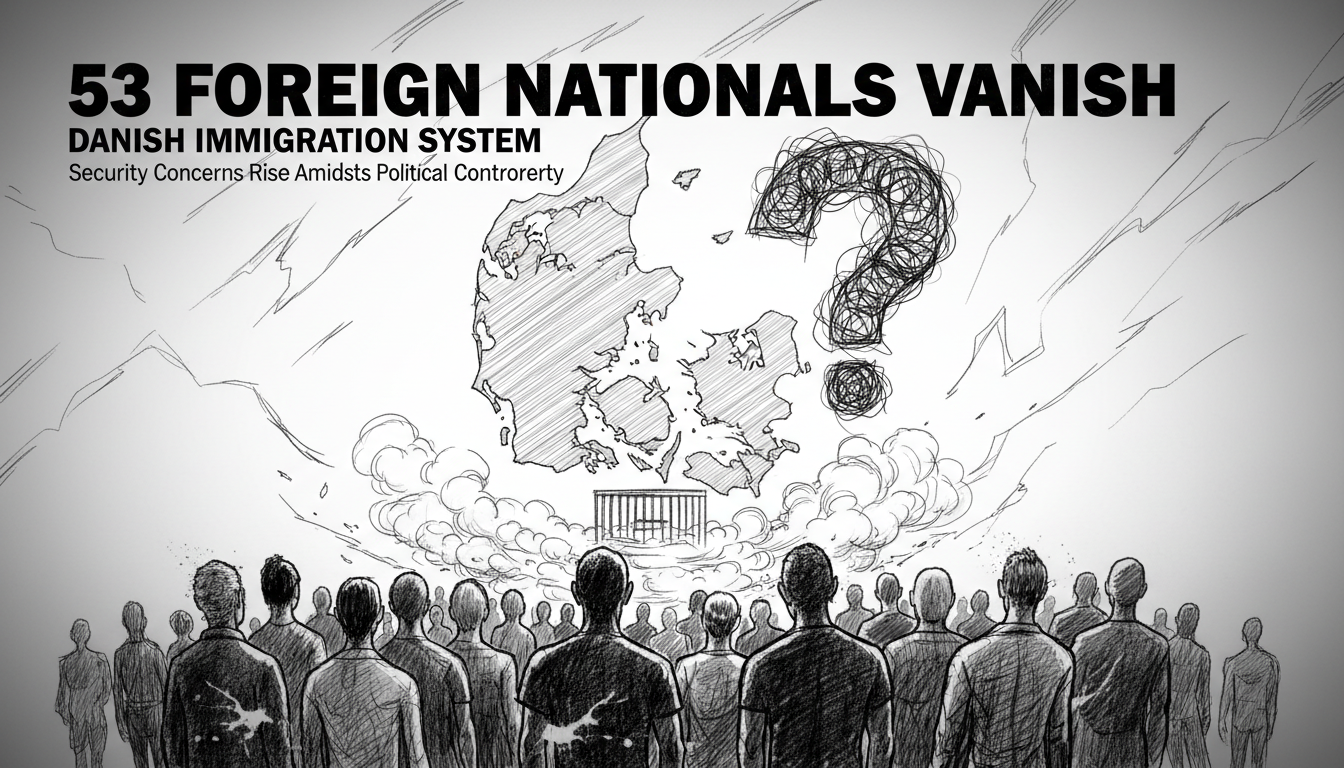Danish authorities have lost track of 53 foreign nationals living under tolerated stay permits, sparking political controversy and security concerns. The missing individuals represent nearly one-third of all foreigners with this special status in Denmark.
The revelation comes from newly published correspondence between Denmark's Immigration and Integration Minister Rasmus Stoklund and opposition immigration spokesperson Peter Skaarup. The documents show that the Danish Return Agency cannot locate these individuals despite their legal obligation to remain at designated facilities.
Tolerated stay status applies to foreigners who cannot be deported to their home countries because they face risks like death penalty, torture, or inhumane treatment. Another group receives this status because authorities suspect they committed serious non-political crimes abroad. A small number are considered threats to national security.
All individuals with tolerated stay status have criminal convictions. The opposition immigration spokesperson called the situation scandalous, noting these include individuals convicted of terrorism, rape, and gang-related crimes.
The Immigration Minister acknowledged this isn't a new problem. He suggested many missing foreigners likely left Denmark voluntarily without official assistance. Those who remain in the country illegally could face severe penalties for violating their control obligations.
This isn't the first time such concerns have emerged. Previous reports indicated even higher numbers of missing tolerated stay foreigners. The current figures show some improvement but continue to raise alarm about system effectiveness.
The Danish Return Agency explains that foreigners without legal residence typically get reported missing after 72 hours of absence from their assigned locations. Exceptions occur only when authorities confirm valid reasons for absence, such as obtained residence permits or confirmed departure from Denmark.
This situation highlights ongoing challenges in Denmark's immigration enforcement system. The significant number of unaccounted individuals with criminal backgrounds raises legitimate public safety concerns. It also shows the difficulties authorities face in balancing human rights obligations with effective immigration control.
The political response reflects Denmark's ongoing debate about immigration policy. Opposition parties see this as evidence of system failure, while the government emphasizes the complexity of managing cases where deportation isn't legally possible.
For international observers, this case illustrates the practical limitations of immigration systems even in well-organized Nordic countries. It shows how legal protections against returning people to dangerous situations can create enforcement challenges when combined with previous criminal behavior.
The Danish authorities continue their search for the missing individuals while political discussions about reforming the system intensify.

